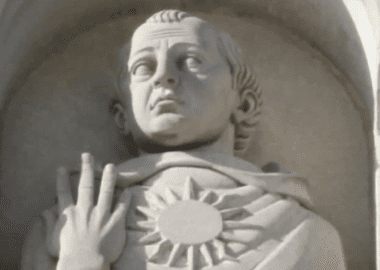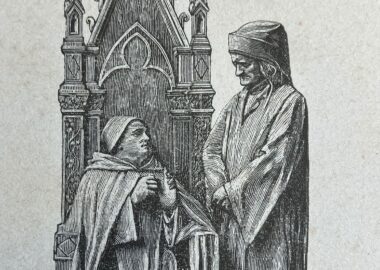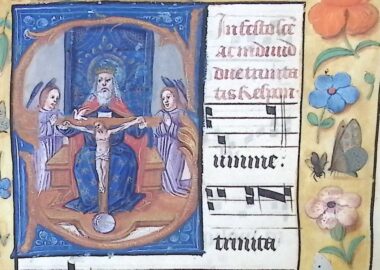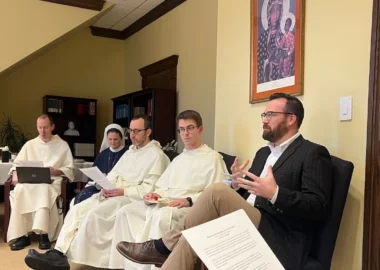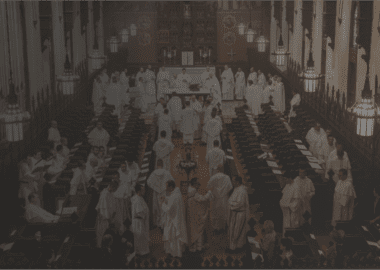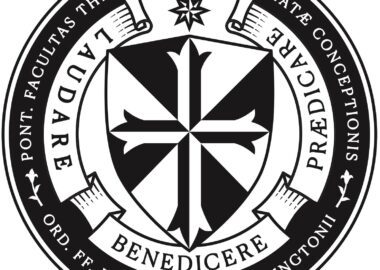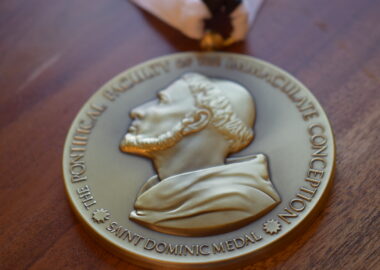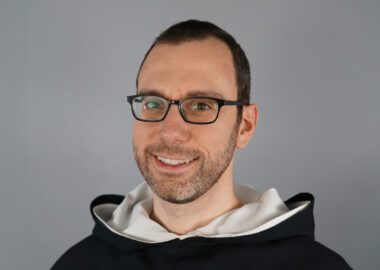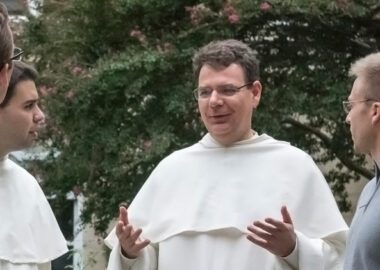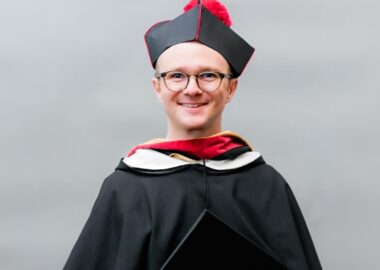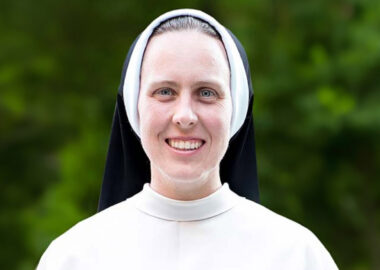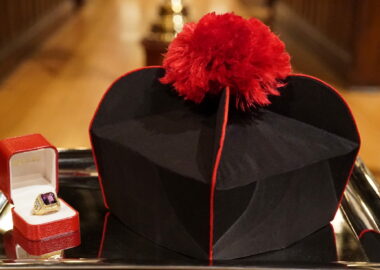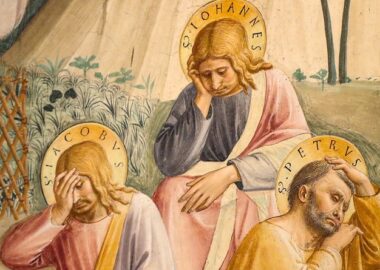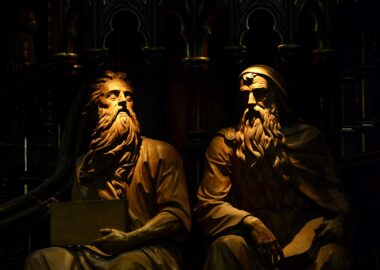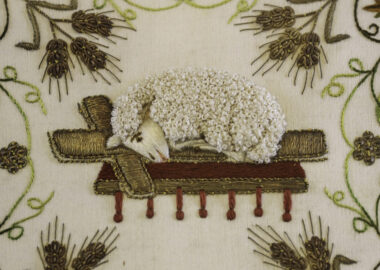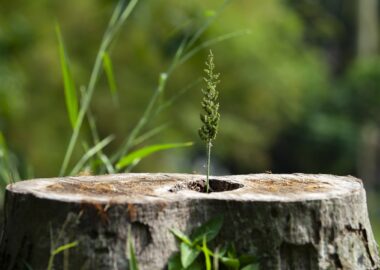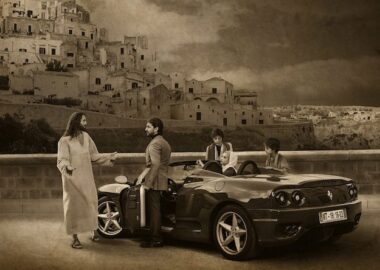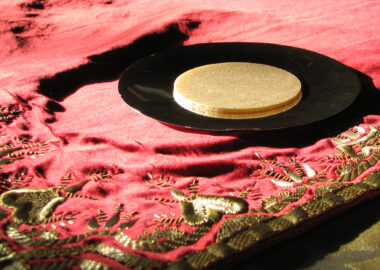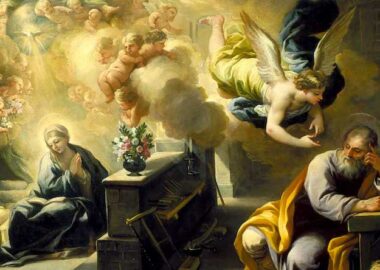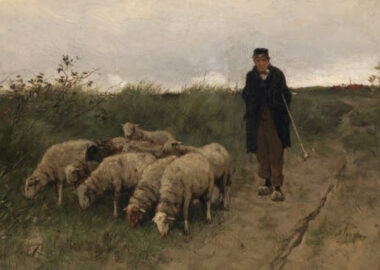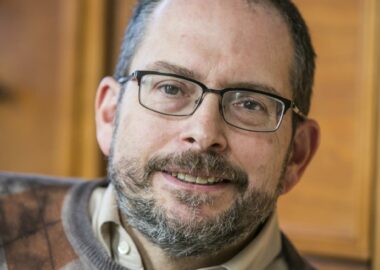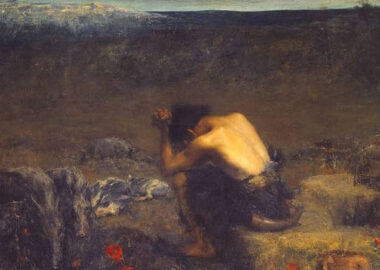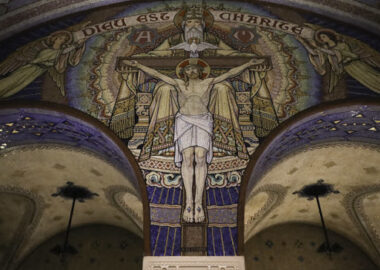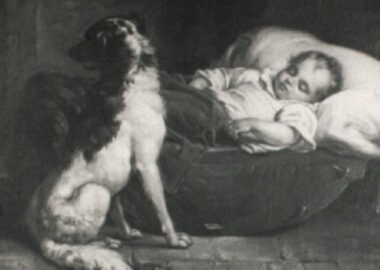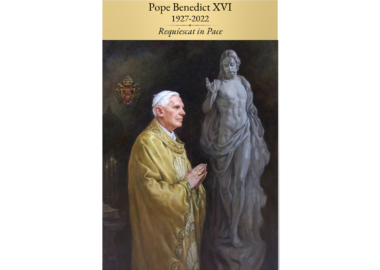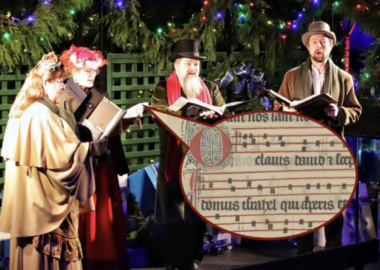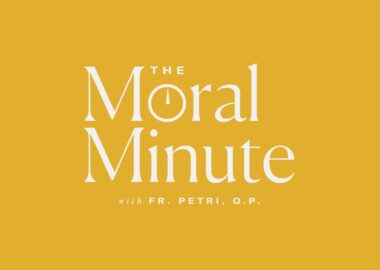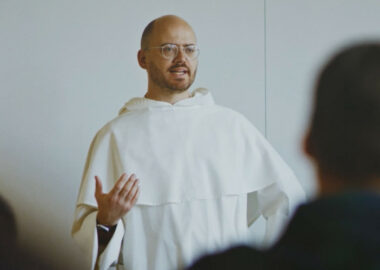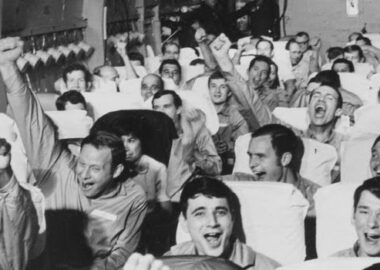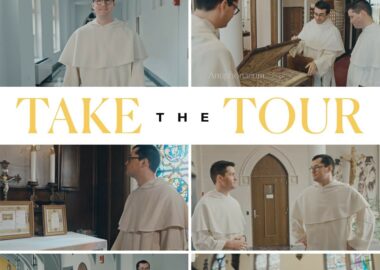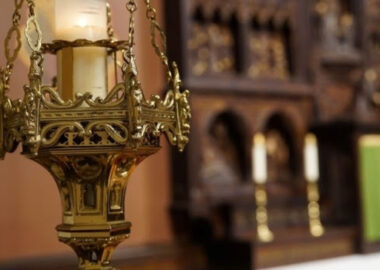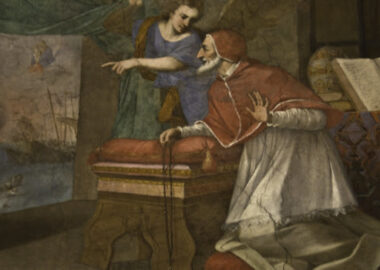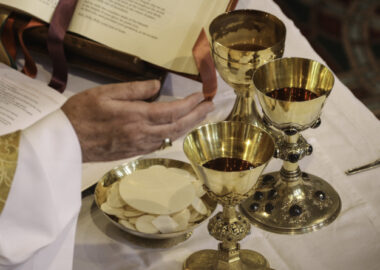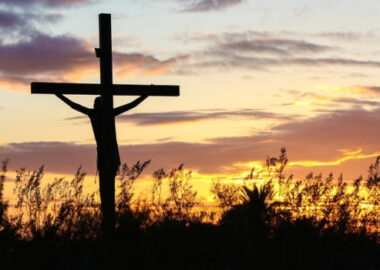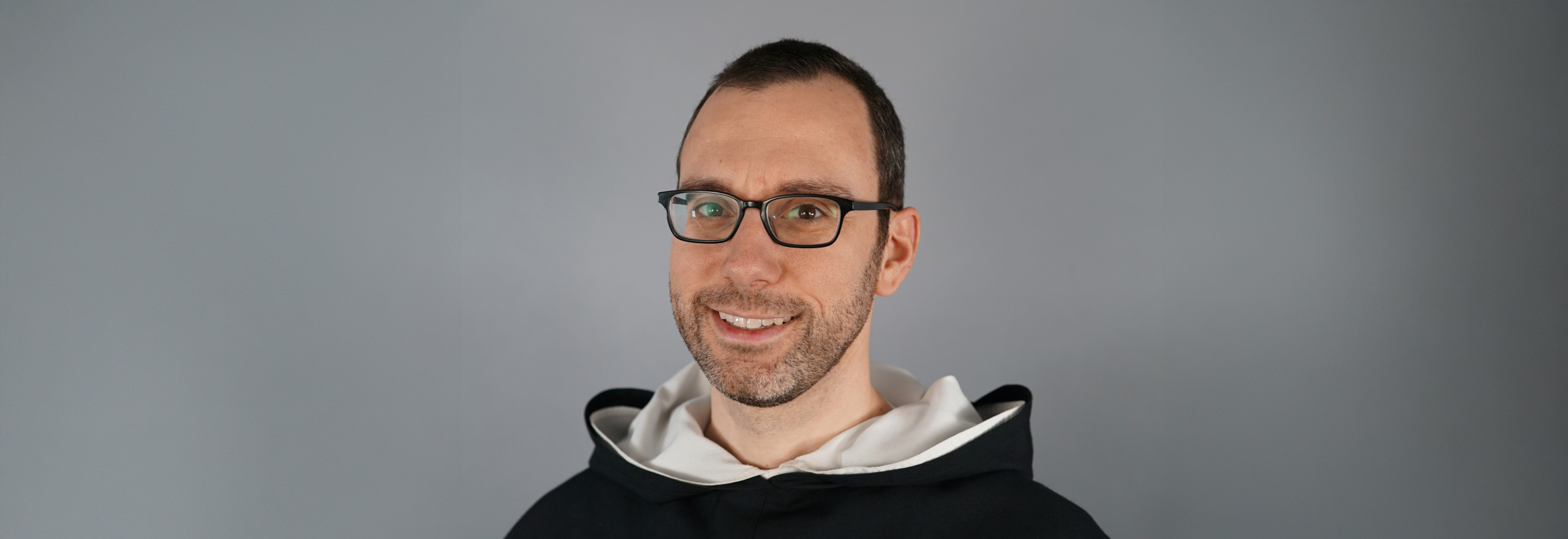
- Home
- Latest Content
- The Role of Community in Dominican Formation
The Role of Community in Dominican Formation
The fraternity of the Dominicans is symbolic of the deeper communion to which all Christians are called. Teaching friars the power of community while pursuing their religious education serves as a powerful witness that Dominican life offers exactly what people are desperately seeking. Not just to those within the order, but in the Church and in the world.
on
April 30, 2025
in
Lighting the Path
Preachers are not formed in isolation. They are shaped by the fraternity of their brothers through the daily rhythm of prayer, study, and shared life experiences. This idea is so central that community is one of the four pillars of Dominican life.
Current Student Master and DHS Alumnus Father Sebastian White, O.P., understands and embodies this truth. Having experienced the support of tight-knit communities throughout his life, the brotherhood shared among Dominican priests ultimately drew him to the Order.
In his role living with the brothers in formation, Fr. White fosters closeness among students, ultimately informing their ability to share God’s love in their worldwide assignments after graduation. Through his experience and example, friars learn valuable life lessons on harmony, coexistence, and love for one another that, along with the rigorous spiritual education they receive in the classrooms at the Dominican House of Studies, will be instrumental as they go forth in God’s service.
A Journey Toward Community
Fr. White’s path to the Dominican Order was often guided by the same communal spirit he now seeks to cultivate within the friars here at DHS. His tight-knit family was devoutly religious throughout his formative years.
He was baptized Catholic but grew up attending a different Christian church with his family while still maintaining an active faith in Christ at home. His upbringing instilled a deep sense of devotion and a longing for truth, even though his religious identity remained somewhat unsettled.
During his university years, Fr. White began to feel God pulling him back to Catholicism. In addition to studying philosophy, his friend group was prone to deep discussions and openly questioning the nature of man and God’s role in our lives. These discussions reawakened a desire to feel closer to God in Fr. White’s life and ultimately led him back to regularly attending Mass.
“There was something about Catholicism that resonated deeply,” he recalls. “The Church’s intellectual tradition, the sacraments, and the sense of continuity with history all pointed to something enduring and true.”
After confirmation and before receiving his call to religious life, Fr. White pursued a career in publishing. Immersed in the world of ideas, he developed a profound appreciation for language, communication, and the pursuit of truth. Yet, something was missing.
“I was always drawn to truth and beauty,” he says, “but it was encountering others—priests, friends, professors—who helped me see that the search for truth was ultimately a search for God.”
As he internally wrestled with the idea of religious life, it was the witness of joyful, fraternal living that drew him toward the Dominican Order.
“Seeing the way the friars lived together, prayed together, studied together—it wasn’t just intellectual rigor that impressed me; it was the authentic joy of their brotherhood. I realized that if I was going to give my life to something, I wanted it to be this.”
Formation Through Fraternity
The call to Dominican life is both an individual response to God and a commitment to align oneself with a community dedicated to sharing His word for over 800 years. Fr. White recalls that from the earliest days of novitiate, a young friar is immersed in a way of life where “one’s will is no longer one’s own.”
He does not intend this statement to mean that Dominican life stifles the individual. Instead, it is an observation that members of the order are refined and strengthened by integrating their lives into something larger.
“In community, you learn quickly that holiness is not an isolated pursuit,” Fr. White explains. “You grow in charity through the daily, sometimes hidden, sacrifices of living with others.”
For Fr. White, this reality is felt most acutely in the simple, unnoticed moments of fraternity. It manifests in shared meals, small acts of service, and whispered prayers for a struggling brother. He recognizes that these moments form the friar just as much as the formal aspects of his studies.
“You can’t just be a brilliant theologian or an eloquent preacher,” Fr. White insists. “You have to be someone who loves his brothers because the Gospel is most powerfully preached through this love.”
The Liturgy as the Heart of Community
The liturgy is central to the fraternal life of the order. At the Dominican House of Studies, the communal chanting of the Divine Office and the daily celebration of the Eucharist provide a rhythm that unites the brethren in a common purpose.
“The liturgy isn’t just something we do together,” Fr. White explains. “It is the very place where our brotherhood is most deeply formed. We pray as one body, and that prayer is what binds us together.”
The communal nature of prayer extends beyond the walls of the chapel. The reverence cultivated in ritual spills over into how the brothers treat one another. Humility is learned in bowing together before God. Patience is cultivated in waiting for a brother to complete his daily cycle of prayers before speaking. Shared joy resonates when voices are lifted in song.
“These are not just personal devotions,” Fr. White says. “They are the foundation of our common life.”
Grace of Community
For all its blessings, communal living is not without its trials.
“You don’t choose your brothers,” Fr. White notes with a smile. “And yet, they are the ones God has given you.”
There are bound to be differences in personality, background, and opinion. These differences are sometimes magnified as our friars engage in the rigorous academic programs of DHS. The natural man may rear his head even in the context of a life vowed to charity and unity.
Sometimes, overcoming these differences requires an asceticism that is even more challenging to practice than fasting or sleepless vigils. “One of the hardest penances in religious life,” Fr. White admits, “is simply learning to be patient with one another, to bear with one another’s faults.”
He recognizes, however, that we’re often made superficially uncomfortable to encourage deeper growth. He reminds students that a friar who learns to love his brother in his imperfections is the same friar who will later extend that love to all God’s people.
Whatever difficulties may come to bear in communal life are far outweighed by the blessings it brings. “There is a kind of freedom in knowing that you are never alone in this vocation,” Fr. White reflects. “When you struggle, your brothers are there to support you. When you rejoice, they rejoice with you. It’s a life that constantly reminds you that grace is not given in isolation—it is given within the Body of Christ.”
Preaching from Community
One of the greatest fruits of Dominican communal life is the way it shapes the preaching of God’s word. A preacher who has been formed in the crucible of community quickly learns that the Gospel is more than an abstract ideal. Rather, it is something that is lived and shared.
“When we preach, we are not just delivering theological truths,” Fr. White explains. “We are witnessing to the life we have received together.”
This solidifies the authenticity of Dominican teaching. The friar does not preach alone. He carries the wisdom of his brothers with him. Beginning in the novitiate and fortified in the rigorous academic programs of the Dominican House of Studies, the whole of the message is drawn from the insights shared in communal study and the charity learned in daily interactions during formation.
“A Dominican preacher,” Fr. White says, “is never just one man speaking—he is the voice of a community.”
A Witness to the World
Our age is marked by individualism and society feels more divisive than ever. There is a distinct need for the striking counter-witness of the Dominican model.
“People today are hungry for real community,” Fr. White observes. “They long for something deeper than mere association; they long for true fraternity, for a life that is shared and meaningful.”
In teaching friars the power of fraternity while pursuing their religious education, Fr. White serves as a powerful witness that Dominican life offers exactly what people are desperately seeking. Not just to those within the order, but in the Church and in the world.
The fraternity of the Dominicans is not an end in itself; it is symbolic of the deeper communion to which all Christians are called.
“Our community life is meant to be a visible witness to the unity of the Church,” Fr. White says. “When people see us living together in charity, in joy, and in faith, it speaks to something they may not even realize they are searching for.”
No One Stands Alone
At every turn, Fr. White’s story reminds us that vocation is never a solitary journey. Friars in formation at the Dominican House of Studies learn through his example daily that the pursuit of truth, the love of God, and the work of preaching are all inherently communal.
Dominicans are formed by a community for the community and do not stand alone. Together with our brothers, we are one in bearing witness to Christ’s love and directing our work toward the salvation of souls.
Fr. White plays an integral role in forming preachers to go throughout the world and share the gospel. Those who receive it are strengthened in the community of their congregation. If reading Fr. White’s story compels you to support our worldwide efforts to bring souls to Christ, please click here to join our mission.

